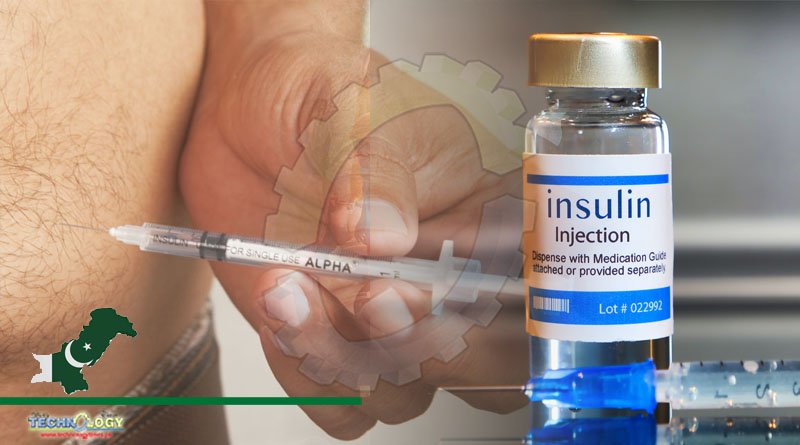“If the current situation continues, diabetics who require insulin will be at risk of further complications, such as heart attacks and kidney failures,” said Professor Dr. A.H. Amir
Following the end of the nationwide Panadol shortage, a similar crisis has arisen in Pakistan for those who rely on insulin to regulate blood sugar levels or have diabetes.
According to medical experts, people with type 1 and sometimes type 2 diabetes need insulin to manage their blood sugar levels and avoid other complications associated with the chronic disease that affects how the body converts food into energy. As a result, the lack of availability in pharmacies has caused panic among millions of patients across the country.
“The government bears sole responsibility for the nationwide shortage of insulin,” said Dr. Azhar Chaudhary, president of the country’s medical association. “Insulin is like oxygen for those with diabetes,” the Lahore-based health expert added.
He claimed that if the government had allowed pharmaceutical companies to open letters of credit (LCs) on time, the crisis could have been avoided. “This led to a shortage of raw materials, and production of the drug decreased. As a result, pharmacies have hoarded the remaining supply in order to charge higher prices,” Dr. Chaudhary explained.
While the government appears to be keeping quiet about the shortage, worried patients and carers have been running from pillar to post to secure insulin, at much higher rates than usual.
Javed Khan, a Peshawar resident, is one of many struggling to obtain insulin for his diabetic mother. “It appears that the government is sleeping while these drug dealers are playing with people’s lives,” an enraged Khan said, adding that some pharmacists were selling the drug in black and charging more than double the normal price.
Muhammad Nabi, a pharmacist in Khyber Pakhtunkhwa’s (K-P) capital, confirmed Khan’s claims, saying that some pharmacists were stockpiling the drug and charging exorbitant prices for it. Nabi went on to say that it was clear that the provincial drug regulatory authorities had no intention of prosecuting such dealers.
While it is unclear whether there will be a crackdown on hoarding and price gouging, a market survey shows that prices for various brands of insulin, wherever they are available, have increased by up to 53%. Humulin, for example, which cost Rs 1,142 a few months ago, now costs Rs 1,500. Similarly, Humulin 70 now costs Rs 1,300 rather than Rs 1,035; Mixtard 30 now costs Rs 1,400 rather than Rs 913; and Janumate’s price has risen from Rs 1,000 to Rs 1,400.
When asked about the high prices across the country, Atif Billo, President of the Wholesale Chemists Council of Pakistan and a resident of Karachi, said it was due to the strength of the dollar. “Apart from the shortage of raw materials, the inflation and the weak rupee have triggered an increase in the prices of imported goods. As a result, pharmacies have no choice but to raise their prices,” Billo explained.
Wasif Shaikh, the owner of a medical store in Karachi, agreed with Billo, saying that drug prices had risen dramatically since June of this year. Concerning the shortages, Shaikh, like Billo, believed that an increase in demand, a lack of raw materials, and a falling rupee had caused an insulin shortage.
“If the current situation continues, diabetics who require insulin will be at risk of further complications, such as heart attacks and kidney failures,” said Professor Dr. A.H. Amir, Project Director of the K-P government’s Insulin for Life programme.
Muhammad Sohail, Director General of Punjab Drug Control, on the other hand, believes that the worst of the crisis has passed. “It is true that LCs were not opened in time and that led to a shortage of insulin in Pakistan, but that issue has been resolved now. According to reports, insulin is now widely available in government hospitals and pharmacies,” Sohail explained.
